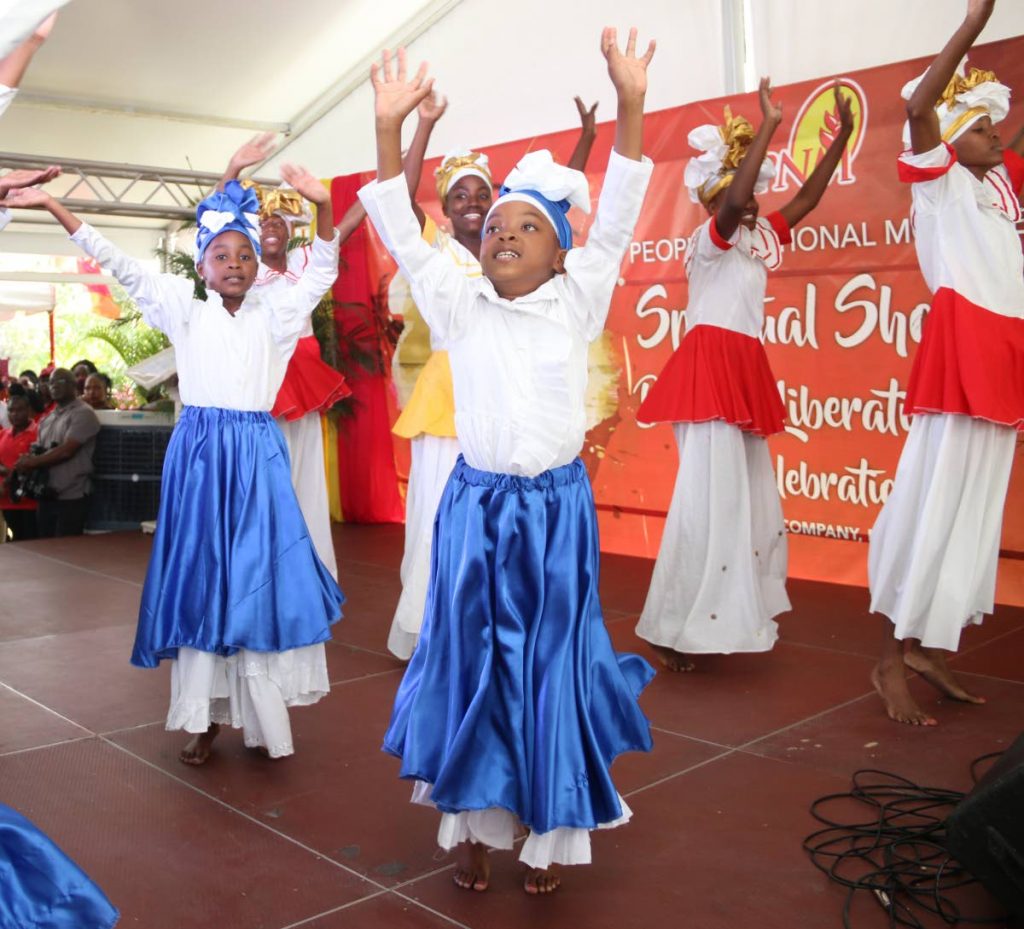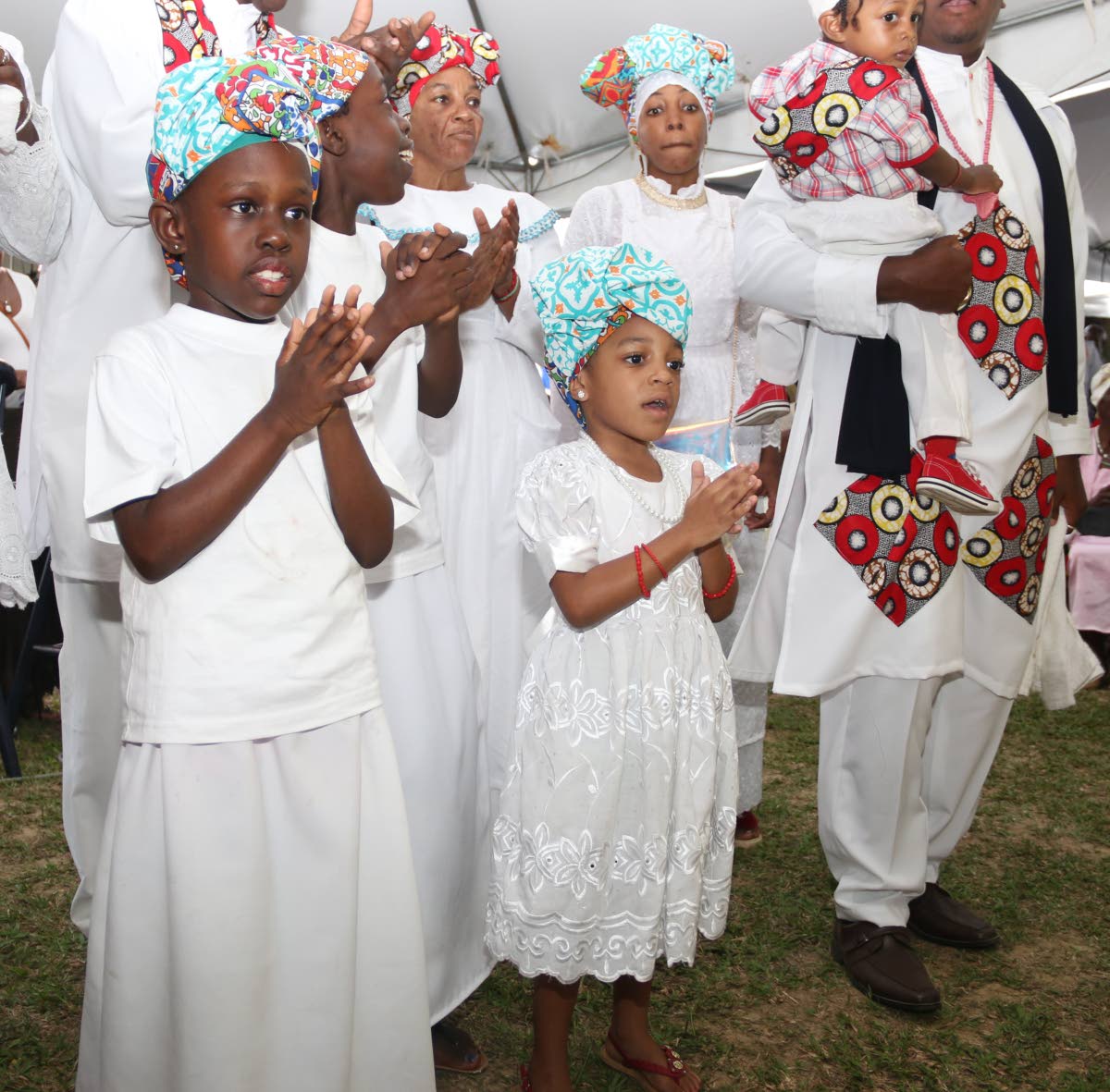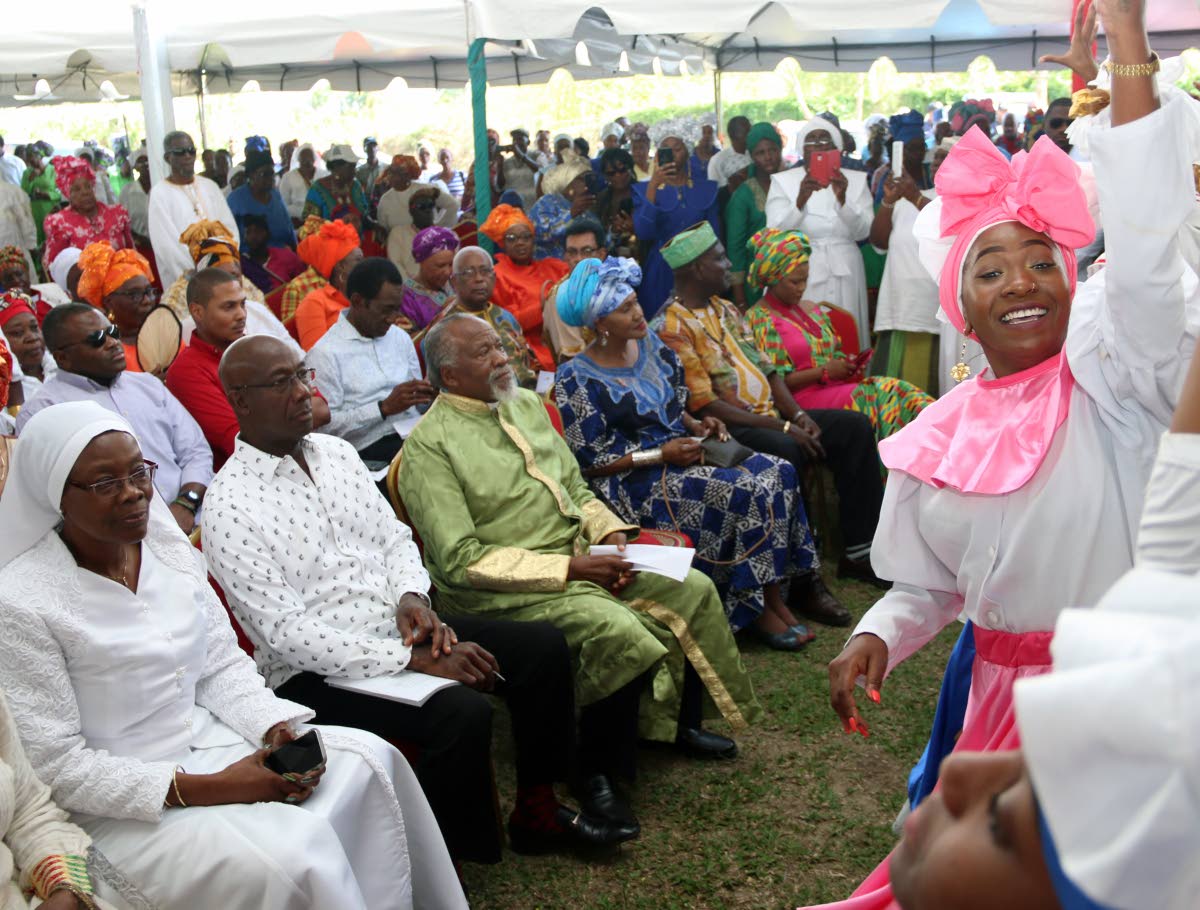Youths, future of Baptist faith

JANELLE DE SOUZA
Many older members of the Spiritual Baptist faith are set in their ways and feel their way is the only correct path.
But the National Congress of Incorporated Baptist Organisation of TT believes it is important to get youths to think differently as well as be active in the faith, not only for their growth and advancement, but the growth and advancement of the church.
Therefore, the Congress placed its main focus on the youth through an academic scholarship programme as well as a school of theology so that all Baptists could understand and be proud of their faith.
Rev Dr Hazel Ann Gibbs De Peza, chairman of the administrative council of the Congress, said, “We are seeing that as the real future of the faith because once you get the youths understanding and loving their faith, and getting that self-development, that personal pride, they will take the responsibility of developing the church.”
She believed the leadership held back advancement as some were more interested in money, popularity, fame, and power than developing the faith for the future. Therefore, she said she hoped the Congress’ efforts would “bring out a different mentality and perception in the next generation.”
The foundation
The Foundation for the Academic Advancement of Spiritual Baptist Youth (FAASBY) was a scholarship programme that had been in place since 1998. Every year several students received scholarships to secondary school after they passed the Secondary Entrance Assessment (SEA) Examination. If they continued to advanced and tertiary levels of education locally, the scholarship continued.
At the moment FAASBY assisted over 50 students who received $1,000 for O-Levels, $1,500 for A-Levels, and $2,000 for tertiary level education annually. The money was gathered through a fundraising dinner and award, corporate sponsorships, and donations from churches.
Gibbs De Peza said although they had been “growing from strength to strength,” getting sponsorship had become more difficult over the years and they had to rely more on the churches for support. However, they were still hoping they to increase the value of the scholarships but in the mean time they do what they can to help.
“What we have discovered is a lot of our children, even though they passed for school and they are successful, their financial situations is retarding their growth. For example, sometimes they don’t have lunch or they can’t go to school because they don’t have passage... Sometimes, when we know some people’s situations, one of us in the organisation would take them under our wing and provide for them as much as we could.”
The scholarship winners were also asked to attend FAASBY’s annual August Holiday and Easter camps. Unfortunately, because of financial difficulties, they had to be cut back. Instead of two weeks, the August camp was cut to ten days, and instead of three to four days, the Easter camp was cut to one day. However, the students still got to know each other better, and were taught about their faith, and about black history. The camp allowed them the opportunity to become friends so when they went out into the business world, they could network. She said the programme had already seen results as the students called each other for help with their home work and gave each other lessons.
Southland school
The Congress’ other line of development was the Herman Parris Spiritual Baptist Southland School of Theology, located in La Brea and Scarborough, Tobago.
Gibbs De Peza explained that the school trained ministers as well as general membership in Baptist history, tradition and doctrine, the Bible, communication skills and other useful topics.
She said, in the past, during the time of the Shouters Prohibition Ordinance, there was a certain amount of secrecy involved in the faith and it remained. Even within the congregation, she said certain things were withheld from members until they reached a particular stage in the faith.
In addition, she said the faith had a stigma of having poor and uneducated members that lingered from the days they had to hide, worship and build churches in the bushes in order to worship and survive. Now, she said they needed to change how they operated but it was difficult after doing things a certain way for so long.
“At the school of theology our aim is to put out a whole cadre of membership and ministers who have an appreciation for their faith and develop a knowledge base that would allow them to be able to understand, articulate, defend and be proud of the faith, and who can help to remove the stigma that is on the faith.”
She added that the Congress looked forward to developing the lands at Maloney, building a cathedral, and any other physical advancement made by the faith. However, she believed that was secondary.
“In the midst of that, what is important is that the membership becomes educated and aware and proud of who they are, able to defend their faith and that the youth develop that same pride in their faith and in themselves so that they would become better ambassadors for the faith as they get older.”




Comments
"Youths, future of Baptist faith"